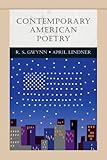Navigation
User login
SUBSCRIPTIONS
S U B S C R I B E
[x]
Sign up now!
SUBSCRIPTIONS - Print Edition, etc.:
JOIN US - Facebook, MySpace, Twitter:
ABLE MUSE NEWSLETTER SIGNUP:
Receive updates on Able Muse events, releases, contests and more --Sign up now!
Also Available:
Eratosphere Workshop -
register
Able Muse RSS Feeds -
![]() subscribe
subscribe

